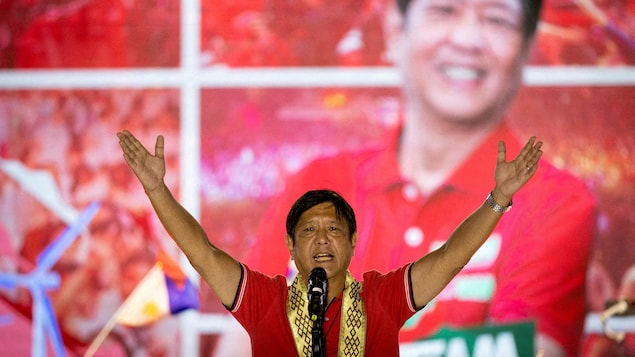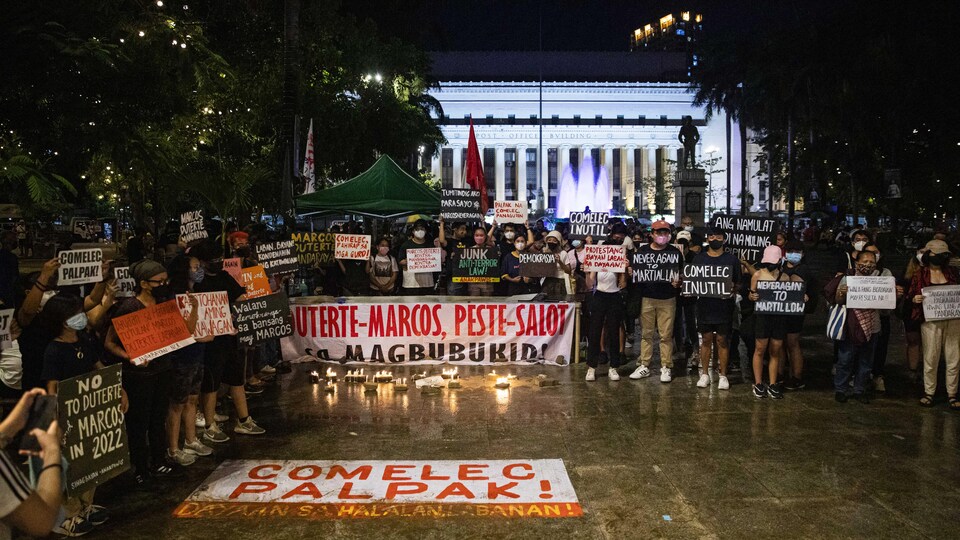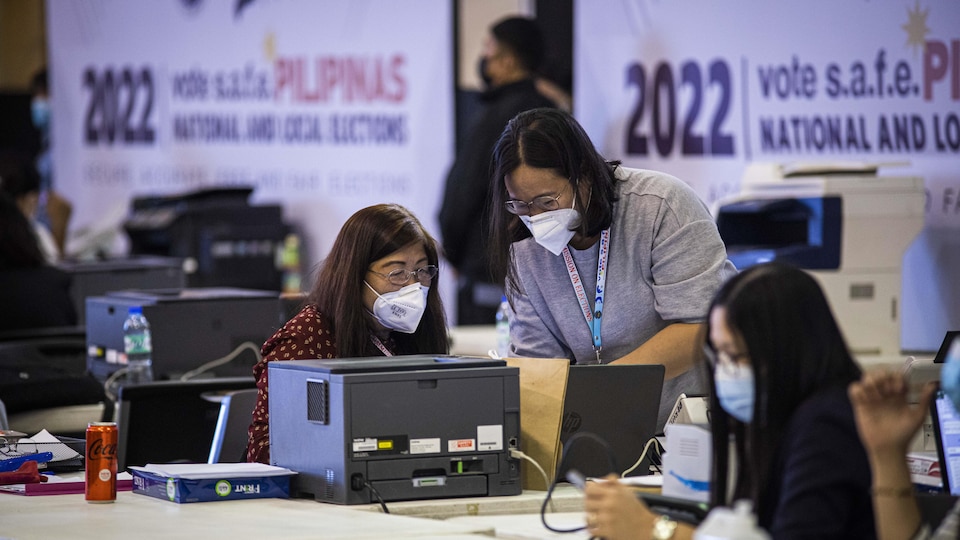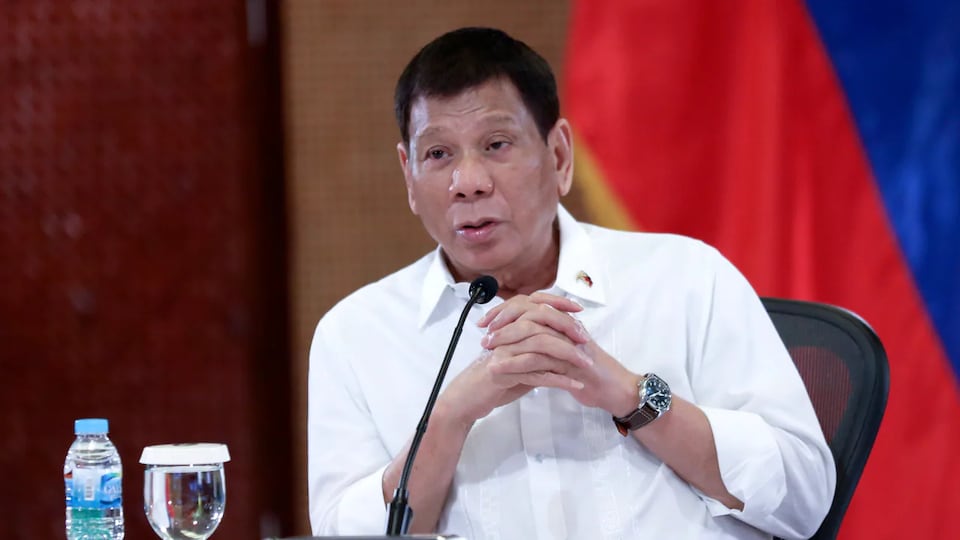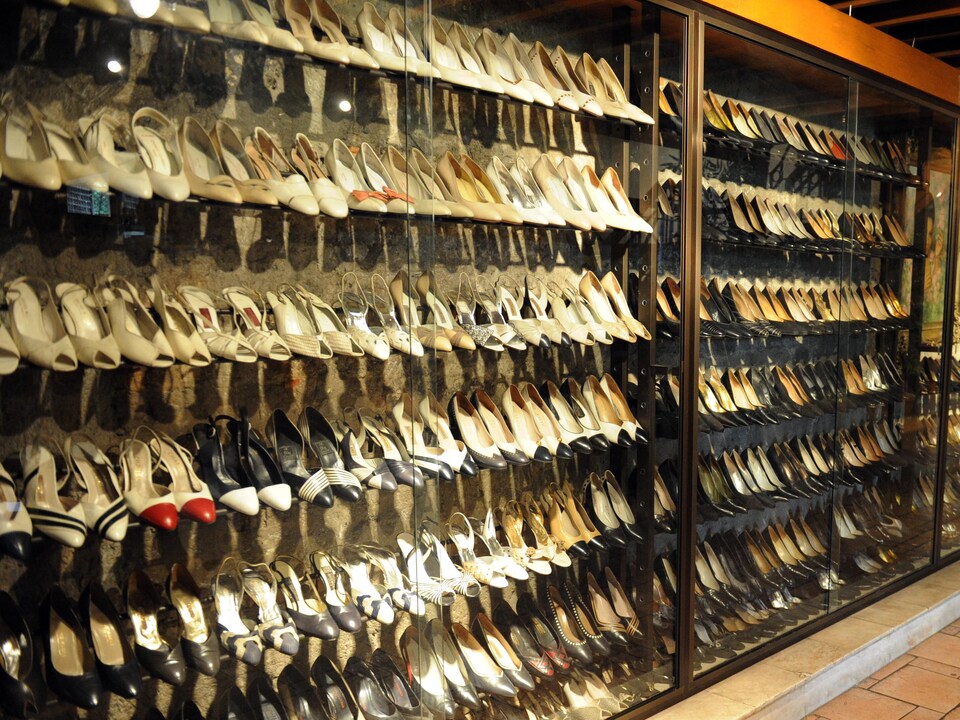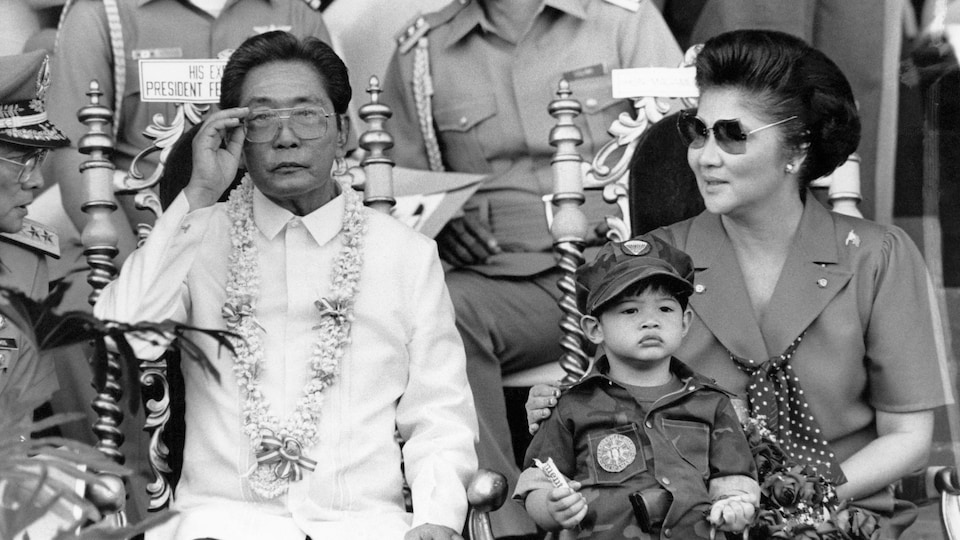Filipino journalist Maria Ressa, co-recipient of the Nobel Peace Prize in 2021 and CEO of the Rappler news site, told CNN on May 10 that the election of Ferdinand Marcos as president of her country “shows, not just in Filipinos, but in the rest of the world, the impact of misinformation on a democracy. ”
This misinformation, he says, will determine the future of this country, but it will rewrite its past. The Philippines, a large state-archipelago in Southeast Asia, 110 million inhabitants, elected a new president on May 9, with a name that emerged from a stressful past: Ferdinand Marcos, son of the dictator of the same name, in power with his family in the 60s, 70s and 80s.
A close ally of the United States, first democratically elected in 1965, but quickly falling prey to autocracy, martial law and unprecedented embezzlement, Ferdinand Marcos was ousted by a popular movement in 1986.
An intense revenge
At age 64, Ferdinand Marcos Jr., alias walljust after the presidential election, in intense revenge on fate, with the pride of his mother Imelda Marcos, 92, who stamped her feet in the face of the victory of son.
Thirty -six years later, the family returned to the palace.
Marcos clearly won, with twice the number of votes than his nearest rival (30 million votes vs. 15 million). It was the return to power of a family dynasty and, according to Maria Ressa, the triumph of collective amnesia.
The Philippine political system is of the dynastic and Hollywood type, often with major actors people no particular program, à la Donald Trump.
Inspired by the American system-with some differences such as a single six-year mandate and the separate election of president and vice president, which can sometimes result in an incompatible duo-this system also has an impact. latin american : strong personalization of power around certain families dominating large parts of the economy, media and political representation.
The Dutertes and the Marcoses
For example, outgoing President Rodrigo Duterte, along with his family, dominated the lands of the South, specifically the large city of Davao, while the Marcoses came from the North, from the large island of Luzon where the capital of Manila.
Striking fact in 2022: the duo president + vice president, elected on May 9, will merge the two dynasties: the Dutertes and the Marcos. Dynasties are, for once, allies and not rivals. Anak Marcos became president and the son of the outgoing president, Sara Duterte-Carpio, vice president.
As for outgoing Vice President Leonor Robredo, a center-left liberal, she is not an ally of President Duterte.
Robredo tried her luck in the presidency this year, through a good campaign, big rallies and some strong ideas on grassroots democracy, social movements and women’s rights. He won 25% of the vote, far from 50% of the wall.
As in the United States, it was a one-round election. There are 10 candidates this year. Whoever comes first wins immediately, with either 50, 40 or 30% of the vote. In 2016, Rodrigo Duterte won with 39%.
Violence and corruption
In the 1980s, senior Ferdinand Marcos left him with the memory of a violent and corrupt family in power.
During the collapse of Marcos ’house, in 1986, the media kept, among other things, as a symbol of this luxury and corruption, the famous 3000 pairs of shoes of Imelda, the first lady at that time. After 20 years in power, Ferdinand Marcos ’name has become a popular synonym for corruption, political violence and rejection of democracy.
In January and February 1986, the last weeks of the Marcos regime were followed around the world: a rigged election, a popular uprising, a political soap opera on television, which ended with the Marcos family flying in chaos. Then the wife of a slain opponent, Corazon Aquino, came to power.
Much has been done to the violence of current President Rodrigo Duterte, associated with praise for weapons and summaries of justice, which has reaped thousands of victims. But this violence has its precedents in the Philippines.
This is a country where, as in the United States, guns are widespread and where state violence is also a tradition. The analysis of Marcos ’years (1966-1986), compiled by Amnesty International, speaks well: 3,257 extrajudicial executions, 35,000 cases of torture, 70,000 arbitrary arrests.
(It can be observed that this is less than 25,000 or 30,000 violent deaths attributed to Rodrigo Duterte and his campaign against drugs over the past six years.)
The economic record is also tough. By the end of Marcos ’years, the financial crisis, rapid inflation and population poverty fueled the uprising.
Not to mention the legendary theft of public accounts, valued at nearly $ 10 billion, which entered the Guinness Book of Records at the time. Not far away, in the late 1980s, there was also a Mobutu, in Zaire. But for him, we didn’t speak na of 4 or 5 billion stolen.
Now, of course, we see higher numbers on the Russian side of Putin and the oligarchs. There, we can easily add zero compared to these figures in the 1980s. Apparently the records were made to break.
collective amnesia
Filipino voters did not seem to oppose, throughout the family history, Ferdinand who was younger, at the age of 28 in 1986, was already involved in business family.
Ferdinand Marcos junior’s campaign, which just ended, was a masterpiece of political bleaching and rewriting history. One can speak, according to Nobel Prize winner Maria Ressa’s thesis, of a carefully regulated amnesia.
In a lengthy interview published on May 9 by the Italian newspaper Corriere della Serashe argues that social media has brainwashed Filipinos.
After humiliation and exile in 1986, then father’s death in 1989 in Hawaii, Imelda Marcos underwent in the United States a trial for embezzlement, which ended with acquittal in 1990. Then, back to country and political reunification. Ferdinand Jr. won as representative and governors, while his mother, who played a campaign role in 2022, made two attempts at the presidency herself in the 1990s.
Failed attempts: the memory of martial law, corruption and 3000 pairs of shoes is too fresh and then social networks have not been invented!
Networks that are whiter than white
Since then, the family image has been polished, cleaned, checked and corrected. And now the brand Marcos enjoying a good reputation. All black and dirty has been forgotten.
On social networks, we conducted an effective operation glorifying the past. Instead of erasing it completely, we have re -invented the whole period of 1966-1986 as the golden period in which the economy flourished, infrastructure flourished, the Philippine state enjoyed peace and international prestige, etc. Forget political violence, nepotism, kleptocracy in the early days of Mark.
Marcos junior’s campaign in 2022 is a totality and method of rebuilding history through social networks.
wall let its advertisers design the campaign people in networks. But there was no detailed program, no debate, no interviews with traditional, snubbed media. On social networks, a friendly, false moderate version of the character was broadcast, far removed from the pomp and excess that was characteristic of the father-mother reign.
According to Maria Ressa, the Philippines is all out in show politics, conducted on Tik Tok and Instagram. It provokes a nation distracted by lies and parallel truthswhere 90% of the population is glued to their phones more than 10 hours a day.
Result: a president Marcos and a vice president Duterte. The great dynasties are back and firmly in the saddle!
Source: Radio-Canada

